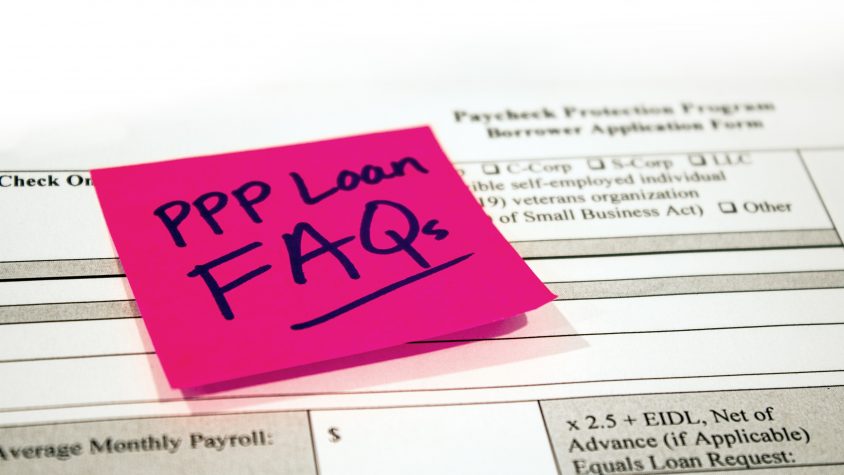According to sba.gov, The Paycheck Protection Program is a loan designed to provide a direct incentive for small businesses to keep their workers on the payroll. SBA will forgive loans if all employees are kept on the payroll for eight weeks and the money is used for payroll, rent, mortgage interest...
According to sba.gov, The Paycheck Protection Program is a loan designed to provide a direct incentive for small businesses to keep their workers on the payroll. SBA will forgive loans if all employees are kept on the payroll for eight weeks and the money is used for payroll, rent, mortgage interest, or utilities.
We have reached out to a local bookkeeper and attorney for proper information on how this program is moving along, as well as how to properly handle the situation.
Mr. Gary Lutz, Jr., Bookkeeper
I’m not sure how much funds are left and which banks are still taking applications, I know a bunch have stopped taking them. If someone is looking to get the funds, it is best to have them start by reaching out to their current bank. The loan itself is basically 2.5 monthly average payroll (for a sole proprietor without payroll, it is 8/52 from their Schedule-C tax form). You have 8 weeks to use the funds from when you receive them, if funds are left over you will have a loan for what’s left at a 1% interest rate, which does leave a bit of risk onto the banks. The banks have applications that need to be filled out.
As far as the forgiveness side of things, at least 75% of the funds need to be used on payroll. Federal taxes are excluded from the forgiveness (so gross wages and state taxes are forgivable). Documentation will be key for forgiveness here, so working with your payroll provider, if you use one, will be really helpful. The remaining 25% can be used on rent, utilities, mortgage interest (if you own the property).
I’ve recommended to clients, as far a record keeping, is to get these funds in a separate account and move the exact amount of funds out of them for payroll and write any forgivable usage checks (eg. rent) directly from that account. That way there will be a trail out of the bank account and with the backup provided from payroll, funds can be easily followed. I’m also putting these expenses in different “account buckets” or expense accounts as far as the bookkeeping goes to easily identify these funds.
Come forgiveness time, the funds that are forgiven are removed from your taxable expenses at the end of the year, so you cannot claim them, so having sound bookkeeping is going to be needed. Each bank may require different things as far as forgiveness goes, so business owners will need to see what they need to give them by working with the bank.
The point of the PPP was to help businesses get people off of unemployment and back to work, not for businesses to take these funds and not use the funds and get a loan.
Mrs. Alyssa Gross, Attorney
1. Check and double-check (and triple-check) the guidance and regulations, as new guidance is constantly coming out, including updated and expanded definitions of language in the PPP that will clarify (or even change) forgivable expenditures. Something that was clear yesterday may not be so clear today (and, fortunately, something that seemed unclear yesterday may have been clarified overnight).
2. Look at definitions of even commonly-used words (like “transportation” or “utilities”) to be sure that the legal use of the term is the same as the common language usage.
3. Engage professional assistance sooner rather than later, and definitely before submitting your application for forgiveness of PPP funds – a lawyer, a bookkeeper, and your accountant are all key people.
4. Not everyone who knows how to operate QuickBooks is a “bookkeeper.” Look for someone who does bookkeeping full-time, and has certifications and training in bookkeeping. This person will make your life – and your application for forgiveness – far better.
5. Similarly, not every attorney is an expert on PPP. Some have been actively keeping up with guidance and regulations as they are released, and others have not. Ask any attorney you think about engaging what they’ve done to get and stay up to speed with the communications from lenders and the SBA.
6. Social media is for cat memes, pictures of your food, and funny stories about your kids – not for getting legal or financial advice. It’s an okay place to start looking for recommendations but don’t rely on a Facebook post from your neighbor’s cousin-in-law to make financial decisions about your business.
7. Read everything before you sign it. If it’s too late for that, go back and read everything you’ve already signed. Anecdotally, some lenders have been burying additional terms and conditions in their loan documents that will make it harder to get loan forgiveness.
8. Ask for help if you need it – even the professionals have had to ask one another for help and clarification as we’ve built the PPP car while driving it, so don’t hesitate to get professional advice if necessary.

